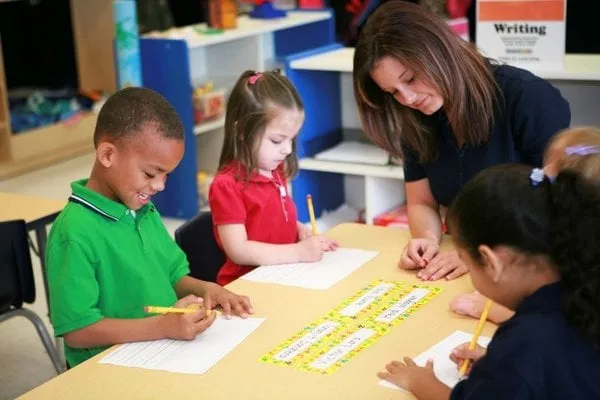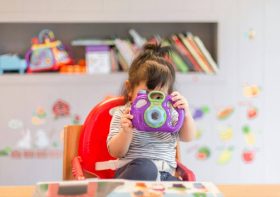The Importance of Play-Based Learning in Childcare

In recent years, it has become increasingly obvious that play-based learning is an essential and effective approach to child development. This approach stresses learning through play, and it lets kids naturally explore their world. The advantages are significant in terms of cognition, together with social and emotional development. In this post, we shall briefly explain the importance of play-based learning and how.
Building Cognitive Skills
This motivates creative play and inquiry, which leads to cognitive development. Playtime presents critical thinking situations for children to navigate. It could be something as simple as building a tower with blocks, which requires balance and awareness of space. These activities, in turn, help children learn to think independently and creatively. Melbourne childcare centres focus on the cognitive development of children.
Furthermore, the freedom of play promotes the development of language. Listening to other children helps them learn words and phrases and increase their vocabulary. Through some storytelling sessions, you can also develop imagination and comprehension skills. These interactions provide young learners with critical reading, writing, and other communication skills that will serve them in their academic careers.
Boosting Interactivity
Social abilities play a major role in the overall development of a child. Through play, children gain experience in working with others, sharing, and interacting with one another. Group activities like playing house or a round of a collaborative game teach kids how to work together and be a team player.
Furthermore, role-play scenarios are another common thing in play-based settings. Kids assume diverse roles that enable them to gain different perspectives. Cultivating empathy and respect — key ingredients in strengthening relationships. Children will learn to handle social situations with confidence through these activities.
Support Emotional Development
One of the important things about play-based learning is emotional growth. Children express their feelings freely through play. Games teach emotional regulation, whether it is in feeling joy while winning or anger when a strategy flounders. But the ability to recognise and handle emotions is fundamental to resilience and adaptability.
In addition, play gives kids a chance to explore their identities. They can try on different roles and scenarios to figure themselves out. By doing this exploration, children gain self-esteem and confidence, which not only helps them face challenges better but also gives them a more positive outlook on life.
Promoting Outdoor Activities
Physical exercise is critical for proper growth. Movement is inherent in play-based learning; therefore, physical health is supported. Running, jumping, and climbing help build gross motor skills and coordination. These are important physical exercises that build strength and flexibility.
Outdoor play also gives children the experience of nature, promoting environmental consciousness. Kids who spend time outdoors will develop a sense of exploration and curiosity that helps them appreciate the natural world. Being in nature may promote healthy behaviour that can last a lifetime and a desire to be outdoors.
Encouraging Imagination and Creativity
Playful environments are more flexible and conducive to diverse thought. Children playing pretend are trying out new ways of thinking. It then, in turn, fosters problem-solving abilities and creativity. For example, a child could play as an astronaut, which brings witness to science and space exploration.
Playing with crayons or even things around the house also promotes creative expression. Children get to see what happens with colours, shapes, and textures through these activities. These experiences build creativity and critical thinking. When children are inspired to explore creativity, they learn to enjoy the process of learning.
How to Use Play-Based Learning in Child Care
For play-based learning to be effective, we need an environment that supports it. This type of approach is what allows caregivers and educators to take an active role. Allocate space for exploration with items: By creating a safe and stimulating environment, your child can spend time exploring, exploring, and exploring!
You have to plan with intention. Give it a shot: Activities should be planned in a way that appeals to the different learning styles and interest levels of the students. You can tell a lot about a child and what they are going through in play. It helps caregivers to individualise activities that will help their children grow.
It is also important to collaborate with the parents. Communication with parents establishes continuity of learning. Parents can reinforce play-based learning at home to enhance the benefits. This allows for transparency and a cohesive approach to the child’s development.
Conclusion
Play-based learning is an important technique in childcare as it aids children in their holistic development. It helps children develop cognitive, social, and emotional skills that will support their learning and growth later in life. Play-based learning in early years environments lays the foundation for a lifelong interest in learning and exploration.
Its fundamental to create an environment that prioritises play. This helps the children learn, mould, and grow in the best manner possible. With the increasing recognition of play-based learning, the integration of play-based learning in childcare becomes all the more important. This approach helps children and the world become a more prosperous place.




Leave a Reply